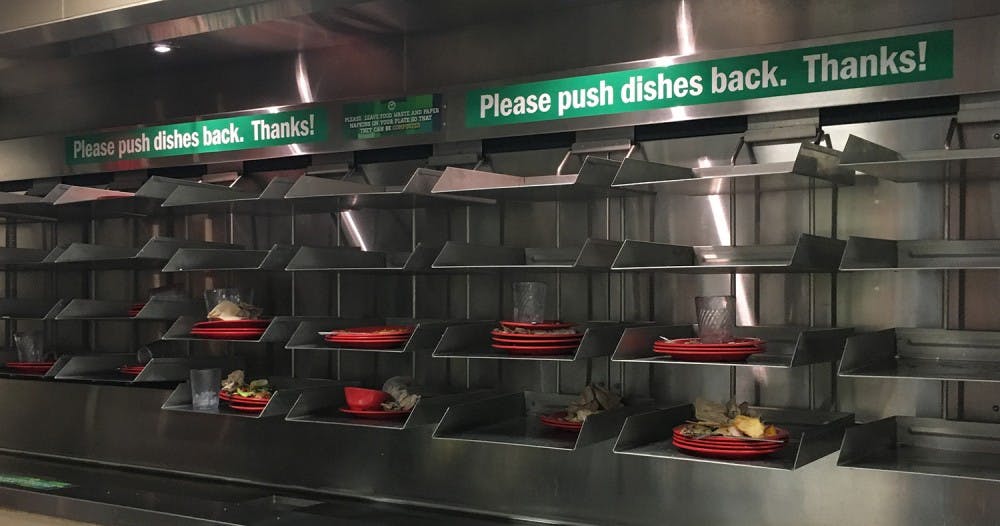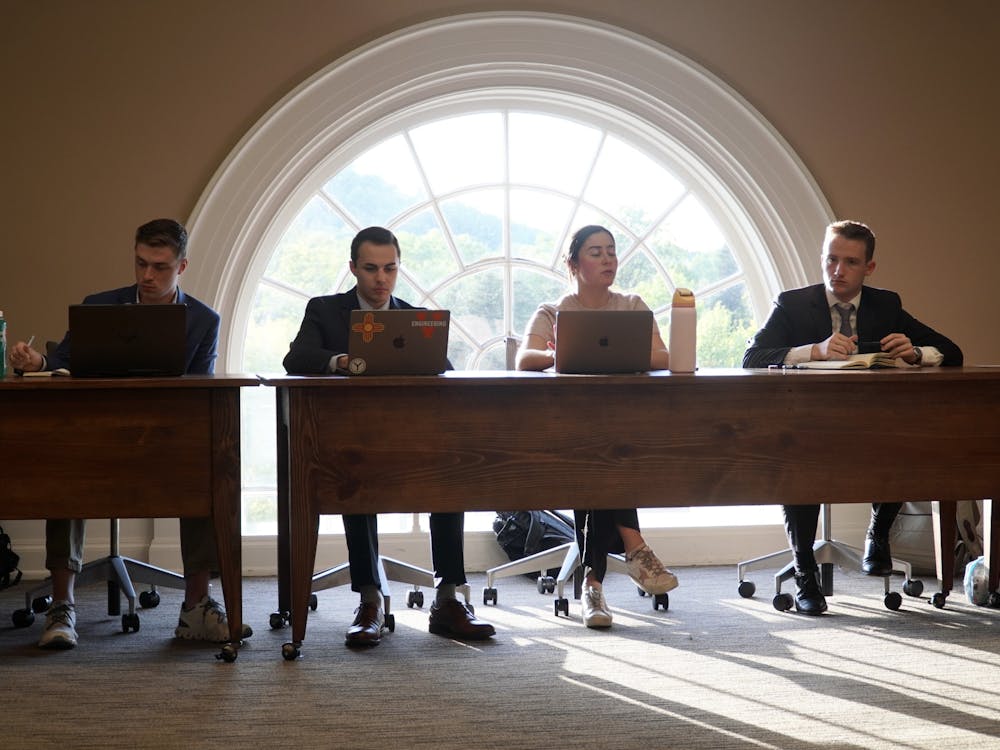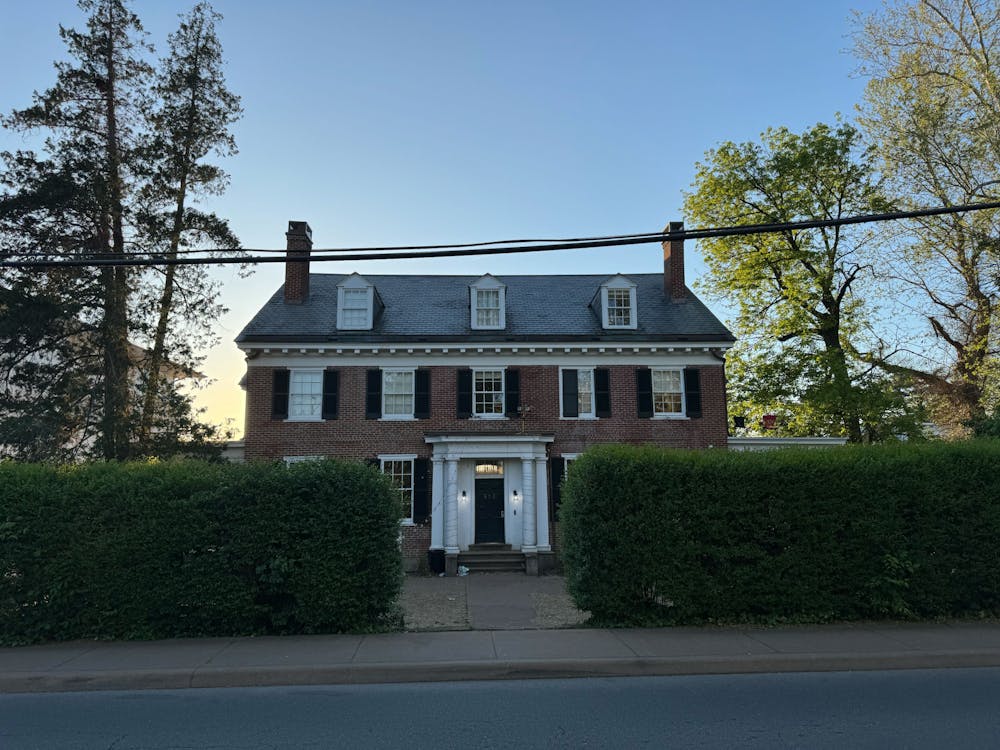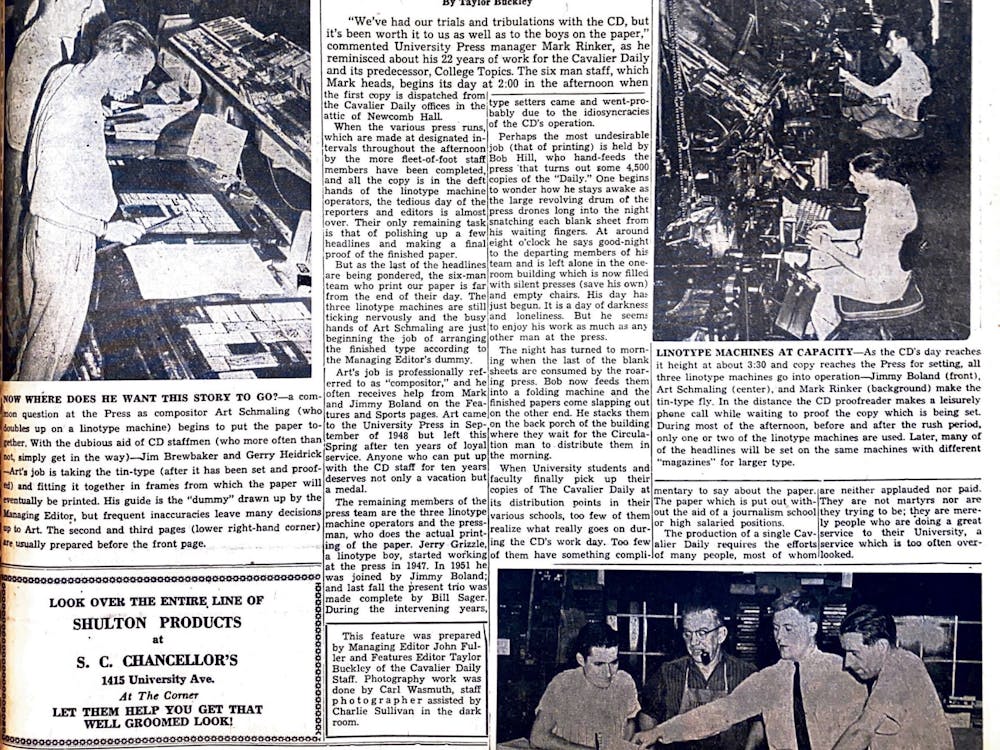The University’s compost program, which has been in place since 2008, has expanded over the years and contributes compost for growing food in gardens on Grounds. The program, which is driven by student demand, aims to add more compost bins and locations around Grounds.
Jess Wenger, University environmental projects manager, said in an email to The Cavalier Daily that the composting program began in 2008 as a project led by Engineering student Dan Michaelson and has continued to expand.
“At the time, there were no composting operations within a reasonable drive from U.Va. that were composting food waste. With Dan’s help, U.Va. worked out a small food waste composting pilot program with a local farm that was composting agricultural waste,” Wenger said. “The original program was very small, starting with only pulped food waste from O-Hill Dining hall, which was eventually expanded to pulped waste from Runk and Newcomb.”
The University has since partnered with outside composting companies to manage the food waste and to generate compost.
Jesse Warren, buildings and operations sustainability program manager, said in an email statement that the University has collaborated with Black Bear Composting, the Rivanna Solid Waste Authority and the McGill waste composting facility.
“We provide the information, training, equipment and service for organizations to source separate their organic waste materials,” Eric Walter, chief composting officer at Black Bear Composting, said in an email statement. “We take the materials away on a set schedule to be composted, where after six months, the materials are a finished compost product ready to be used as a natural soil amendment.”
Walter said composting is an important aspect of sustainability because it limits waste that fills landfills and produces greenhouse gases.
“Keeping organics out of landfills reduces greenhouse gases, since organics decomposing in landfills generate methane — a greenhouse gas 20 [times] more potent [than] CO2,” Walter said. “Landfills are the third largest source of methane in the United States.”
The growth of the compost program at the University is due to student involvement and action, through events such as Game Day Challenge where 94 percent of waste was diverted.
Currently, the University sends eight tons of food scraps to compost sites each week from 22 locations around Grounds.
“Over the last year, we composted about 350 tons of food scraps,” Warren said. “Most of U.Va.’s dining locations, including the hospital and Darden, participate in ‘back-of-house’ composting.”
Wenger said much of the food waste sent to be composted is actually returned as compost to help grow food in gardens around the University.
“The cool thing about composting is it’s closing the loop,” Wenger said. “Compost is used to grow food, then we’re taking waste food, sending it to make more compost, and then that compost is growing more food. Compost from Black Bear has been growing food in the Student Garden and the Hereford Garden for several years now.”
Wenger said a barrier still remains in educating students about everyday actions they can take to compost, as many students remain unaware of the program or the specifics of how to compost.
“Unfortunately, there are still many students who aren’t aware we have this great opportunity to reduce waste that is being sent to landfills that takes almost no effort — all you have to do is throw your food scraps, napkins, etc. into a compost bin instead of a trash can,” Wenger said. “If more students used the existing bins for compostable material, we could justify increasing the number of bin locations on grounds and keep even more waste out of the landfill.”
Warren added that contamination also remains an obstacle for the composting program, which could be remedied with further education about the composting process.
“Contamination remains the biggest challenge, [because] if non-compostable materials are commingled with food scraps, the entire load can be unfit to compost,” Warren said. “When you are in a location that features composting, carefully sort your compostables and recyclables.”
Aramark Marketing Manager Scott Aebersold said students can increase their composting by looking for bins and locations around Grounds, such as the Fine Arts Café and West Range Café.
“Consistency in communication is important, giving students the knowledge that their trash can be sorted in a way that helps achieve our goals of waste minimization,” Aebersold said in an email to The Cavalier Daily. “This is an outreach effort for signage at point-of-sale, at the trash receptacles and as part of our overall sustainability platform that we execute in theme meals, tabling and other outreach events.”





